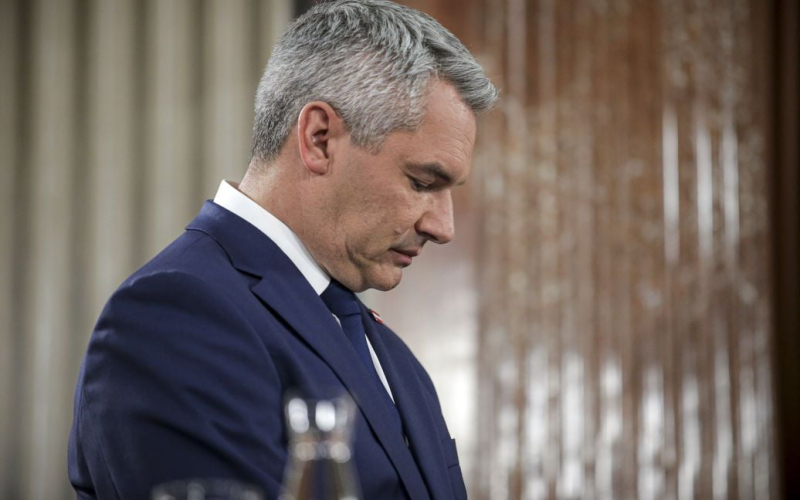
Austrian conservatives and Social Democrats failed to agree on creating a government coalition without a pro-Russian party.
On Saturday, January 4, Austria's acting chancellor, conservative Karl Nehammer, announced that he would resign in the coming days. The reason for this decision was the failure of negotiations to create a government coalition without the far-right, pro-Russian and anti-migrant Freedom Party of Austria.
He announced his intention in a video message on the social network X.
“I negotiated long and hard. An agreement with the SPOe [Social Democratic Party of Austria] is impossible on key issues. “Therefore, we are stopping the negotiations,” Nehammer said.
The day before, on January 3, the liberal NEOS party withdrew from negotiations to form a government coalition, and the conservatives and the Social Democrats failed to overcome their differences on measures to overcome the economic crisis and reorganize the budget.
In his address on Saturday, Nehammer also said that he did not want to negotiate with the Freedom Party (FPOe), although the pro-business wing of the conservatives would agree to an alliance with the far-right.
He said that he would also leave his post as head of the Austrian People's Party.
The parliamentary elections held on September 29 were won for the first time since World War II by an extreme right-wing party led by the controversial Herbert Kickl. The Freedom Party of Austria won 28.8% of the vote.
The Austrian People's Party (OeVP) of acting Chancellor Karl Nehammer came in second with 26.3%, followed by the Social Democratic Party (SPOe) with 21.1%.
These two parties and the liberal NEOS joined forces in an attempt to isolate the far right, but failed to reach an agreement.
If new elections are held, the far right could hope for an even more convincing victory. Recent polls demonstrate the significant popularity of this political force, which could receive about 35% of the votes.
Recall that the leader of the Austrian far-right Herbert Kickl opposes the allocation of money for military aid to Ukraine, criticizes sanctions against the Russian Federation and considers Hungarian Prime Minister Viktor Orban to be his inspiration.
Similar topics:
More news

